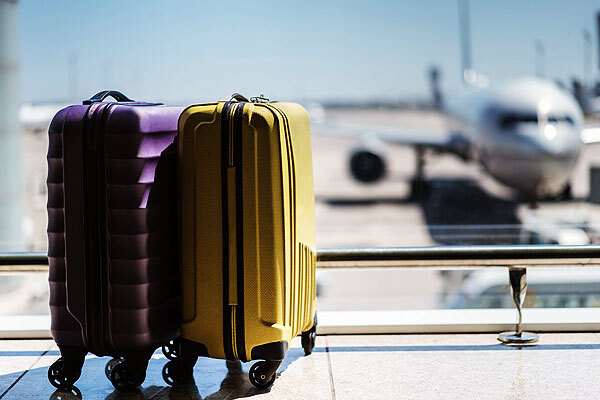Ultimately, the secret to a safe return to travel is trust. As the industry is well aware, the issue of wellbeing is fundamental to the success of your business – how you handle it has a big impact on morale today and your recruitment cost tomorrow.
As the prospect of travel returns to the agenda, many companies are considering how they get back to resuming international trade. In most cases the probability of jumping on an aircraft still looks to be some way off, however it’s vital to be prepared for when the big day comes. Getting the policies and processes right now will avoid confusion and delays and ensure your people are ready for the restart.
1. Walking the talk: Communication is everything in these uncertain times. Prior to the pandemic, attention in the corporate travel world had rightly shifted to the issue of traveller wellbeing, with companies becoming wise to the legal, financial and productivity costs of not meeting their duty of care obligations. To that end, it is essential that staff feel safe and secure and know that their employer has their back. All steps should be communicated in an inclusive way to demonstrate how responsibilities are taken seriously. In practical terms, this means easing traveller concerns before they arise by communicating your risk mitigation plan. Explain how your travel programme allows two-way communication on the road, as well as passing on up-to-date governmental travel advice and specific requirements you have as a business. Running a refresher course in travel booking (with any new rules) and producing updated employee handbooks is another smart way to be proactive in this area.
2. Back to basics: Businesses have to get their ducks in a row before anyone is permitted to travel again and that requires some serious admin. Reviewing your travel insurance coverage is an obvious first step to ensure all staff have adequate coverage in the future, along with a full audit of traveller profiles – do you have up-to-date emergency contact information? Are visas and passports about to expire? What about health profiles and travellers’ travel preferences? To avoid uncertainty, it is probably worth arranging a dedicated chat with each ‘potential’ traveller too. If, for example, a staff member has a medical condition that increases their risk of Covid-19, or has chosen not to be vaccinated, having a conversation in advance could save challenges in the future.
3. Respect the process: Most important of all is how you handle future bookings. From a company perspective, the emphasis going forwards must be on permission to travel. Be clear on the approvals process, especially if additional authority is needed to give trips the green light. Be sure to communicate how a trip should be booked (via a TMC or other online tool) and review all your supplier agreements to ensure they are in line with the changes in your policy. Another area that your TMC can help with is making sure you use up any credits you may have had on hold, as this will minimise your company expenditure in straitened financial times.
4. Lots of choice: It’s a different world and travelling is going to look very different too. That said, staff will be able to travel safely if they follow guidelines. To support employees, consider simple hygiene standards to go alongside those in everyday life – for example, minimise luggage so cases are not being handled by lots of people, arrive at the airport early to avoid standing in queues where possible and keep hand wipes and hand sanitiser readily available to wipe down surfaces. Elsewhere, travellers may want the option for rail travel or car hire instead of short flights so make sure your policy is modified to accommodate this. And be aware of the excellent work hotel chains are doing around hygiene and safety, as these standards will bring reassurance to your people – shifting your business to preferred hotels and airlines based on such criteria is something your TMC can sort easily.
5. Be flexible: Your travel policies will have likely already changed. Over time, travel will continue to evolve and you will undoubtedly receive lots of feedback from employees at the sharp end – be sure to pass this on as your suppliers will be keen to know how their customers are coping. Pass the information up the chain in your business as well, as senior management should be aware of issues and successes identified. Steps such as implementing safer travel, taking longer routes to destinations and choosing different suppliers is all part of the ‘new’ world and it is sure to have a cost implication that must be handled carefully when employee safety is at stake. It also pays to plan time to regularly review your policy so that it is reflective of restrictions and other constant changes.
Ultimately, the secret to a safe return to travel is trust. As the industry is well aware, the issue of wellbeing is fundamental to the success of your business – how you handle it has a big impact on morale today and your recruitment cost tomorrow.
Samantha Dyson is a Global Account Manager at corporate travel specialist ATPI. The ATPI Group operates from more than 100 offices worldwide and has successful operations in corporate travel, corporate event management, online travel technology and specialist travel management for a number of industries.

















































































































































































